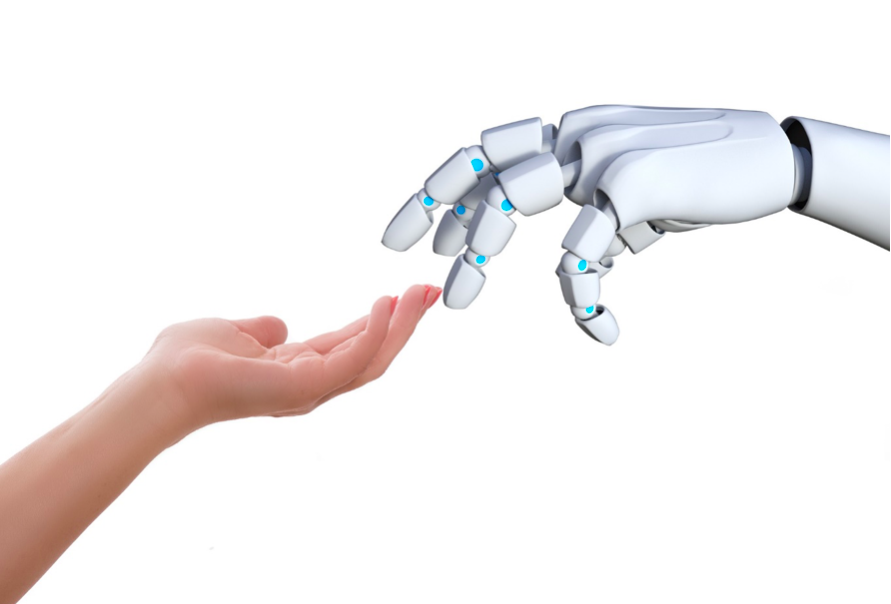Retailing Post-COVID19: Artificial Intelligence on the Rise
/The retail industry, despite still keeping their lights on, was hit hard by the Covid-19 pandemic. A Forbes article uncovered that business had fallen around thirty-percent from previous years. The reason for such a sharp drop was the lack of foot traffic in stores. Retail industries thrive on foot traffic, and if no one is coming into the store there is no profit to be made. Rather sound logic in a world where that's becoming increasingly hard to find.
Since the 2010s, online retailers like Amazon have been thriving and forcing the retail landscape to change to match them. What Amazon offered, unlike other websites such as eBay, was thousands of different products that were essential at home and could be purchased without the trip to a store. This saved the consumer valuable time and ensured they always received the product they ordered.
To combat the rise of Amazon, many retailers such as Target and Walmart began modeling their websites around a similar business model. This included offering shipping to home or in-store pick-up. While not a bad model in the slightest, these online stores couldn't compete with Amazon. Now that the world has dealt with a pandemic that forced many to stay at home, consumers are preferring a store that they don't have to travel to.
Will the retail industry survive? Yes, but it will be badly shaken. Stores that sold essential items, like Target, Walmart, and Costco will weather the economic storm. But smaller, more specialized retailers will have to shut their doors or adopt a completely digital platform. This is one change that is all but certain, a push for digital sales platforms and a firmer grasp of e-commerce.
Consumers, after surviving a pandemic where they had to keep their distance and anyone sneezing was met with glared and panic looks, aren't going to be that interested in going to a store and buying milk and possibly getting sick. Instead, they would want the milk delivered to their home without coming into contact with anyone. Consumers aren't lazy, they're now afraid of getting sick and digital stores are a much safer option.
Now, for a digital platform to work there needs to be artificial intelligence. AI in retail doesn't mean stores will soon be filled with robots, although the retailer Lowes had created a machine to assist customers so they might be first to stock their staff with machines. Instead, artificial intelligence is used in conjunction with digital sales platforms to better assist both the consumer and the retailer.
Some companies take this to the extreme, such as Amazon Go stores. These stores feature no cashiers and instead use sensors and cameras to track a customer after they signed into the store with their Amazon account. The customer can take whatever they like, and a bill will be sent to their account. While a clever idea, there are so flaws such as no human assistance.
While robots like Lowebot and Pepper can still assist customers in a store, their AI is too rudimentary to fully replace a human. Instead, for retailers, the ideal post-COVID world will be one where humans and artificial intelligence work together for the benefit of the customer.
For this union to work, however, retailers will need to start cutting back on staff and the current staff will need to be trained to work with the AI. Not so much a dreaded scenario where robots will replace human workers, but still one where human jobs may go to machines. The retail industry is well known for accepting anyone who could work, but a trend may occur where investing more in machine labor will outweigh the costs of purchasing the machines and artificial intelligence when compared to hiring human workers.
This, in turn, leads to a smaller workforce but one that is likely more skilled and better paid. Of course, this is just one possible scenario in a post-COVID world. Retailers, and consumers, were shaken by the virus and daily life has drastically changed. At the very least, retailers have realized that they need online sales platforms like these to match Amazon along with better ways to manage their warehouses to ensure shelves are stocked.
Artificial intelligence in retail will likely take the form of smoother online stores and warehouses that are handled by AI. For the consumer, this means their online and offline shopping experience will be smoother; outside of online stores, some retailers are investing in smartphone apps that will walk a customer to their product and then offer some helpful recommendations for new products they might need.
With AI-managed warehouses, product stock can be updated and ordered on the fly, and shelves stocked in a matter of hours as opposed to days. This doesn't mean the system would be flawless, but retailers understand why keeping a full stock on hand is beneficial. The pandemic saw not only hoarders, but many consumers being turned away because basic essentials were sold out.
As mentioned, there are many scenarios that could play out in the post-COVID world. Retailers will still exist, but it's a guarantee that they'll start changing their attitude about online sales and the use of artificial intelligence, even if the AI is only for their online store or smartphone app. It might be a decade or two before we have stores like Amazon Go lining every street corner or robot workers instead of human workers, but for now, artificial intelligence in retail will become a game-changer for the future of the industry.


![Retail-insider-NRIG-banner-300-x-300-V01-3[2].jpg](https://images.squarespace-cdn.com/content/v1/529fc0c0e4b088b079c3fb6d/1593476525034-QRWBY8JUPUYFUKJD2X9Z/Retail-insider-NRIG-banner-300-x-300-V01-3%5B2%5D.jpg)
![Retail-insider-NRIG-banner-300-x-300-V01-2[2].jpg](https://images.squarespace-cdn.com/content/v1/529fc0c0e4b088b079c3fb6d/1593476491497-W6OZKVGCJATXESC9EZ0O/Retail-insider-NRIG-banner-300-x-300-V01-2%5B2%5D.jpg)
![Retail-insider-NRIG-banner-300-x-300-V01-4[2].jpg](https://images.squarespace-cdn.com/content/v1/529fc0c0e4b088b079c3fb6d/1593476508900-TJG5SNQ294YNOCK6X8OW/Retail-insider-NRIG-banner-300-x-300-V01-4%5B2%5D.jpg)